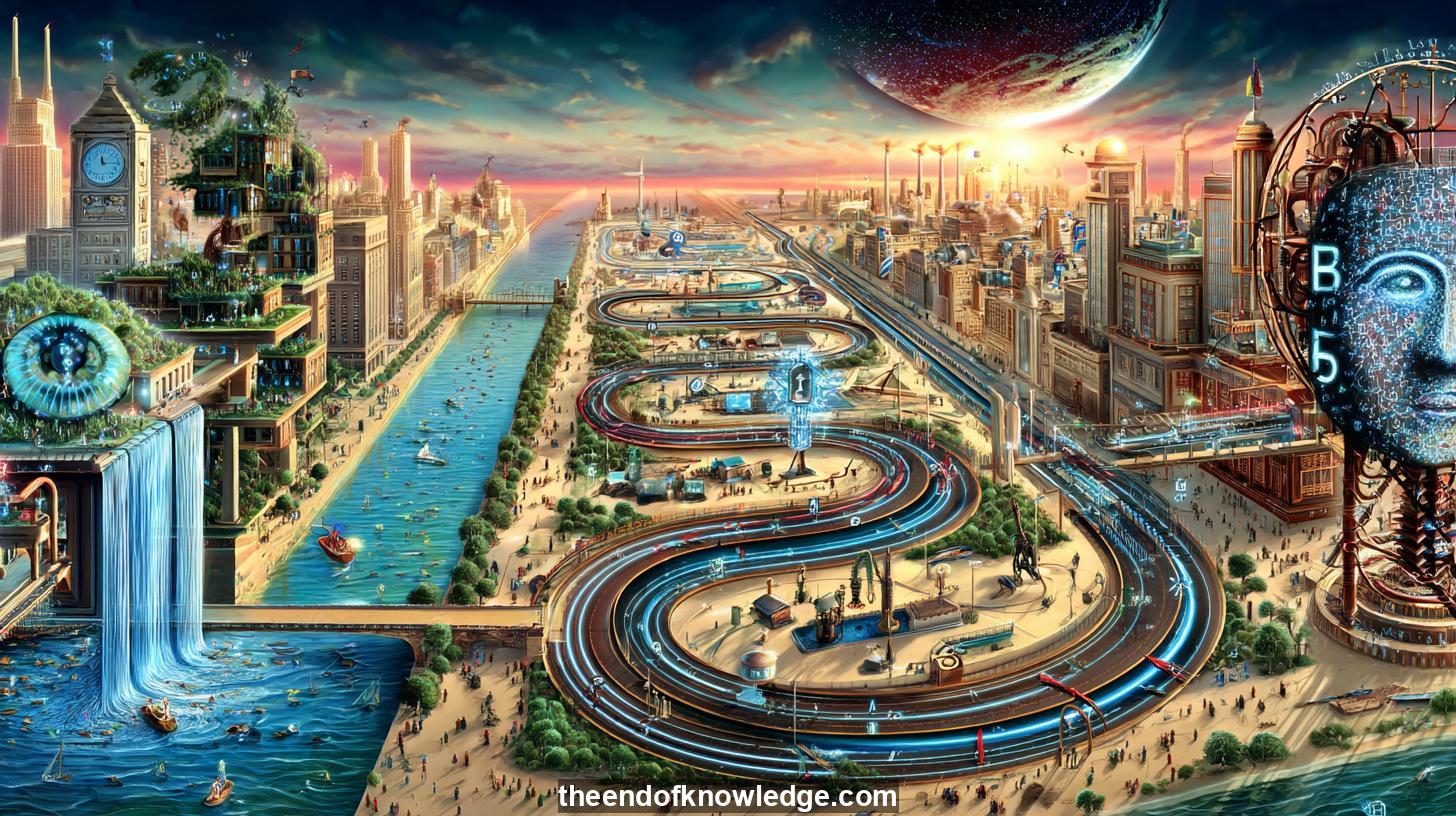 >
>
Concept Graph, Resume & KeyIdeas using Qwen3-235B-A22B :
Resume:
The conversation between Plácido and Carlos Moreno Morera explores artificial intelligence’s transformative potential and societal implications. Carlos recounts his journey from theoretical mathematics to applied AI, emphasizing the shift from deterministic models to probabilistic systems capable of handling complex, real-world tasks. He highlights pivotal moments, such as early exposure to machine learning through Santander’s client prediction challenge, which sparked his interest in natural language processing and neural networks like LSTMs. The dialogue underscores AI’s evolution from niche academic research to a mainstream force driven by advancements like transformers, democratized through open-source tools and reduced computational costs. Carlos stresses the importance of foundational skills—programming, statistics, and adaptability—for newcomers, while acknowledging the tension between rapid innovation and the need for ethical frameworks, regulation, and societal preparedness for disruptions in employment and governance.30 Key Ideas:
1.- AI transitions from theoretical research to mainstream adoption, driven by transformer models and open-source democratization.
2.- Foundational skills like programming and statistics are critical for navigating AI’s rapid, complex advancements.
3.- Reinforcement learning reduces reliance on human data, enabling synthetic training for efficient model development.
4.- Small language models (SLMs) offer cost-effective, accessible alternatives to large models for specific business tasks.
5.- Ethical alignment remains a key challenge, requiring frameworks to prevent harmful AI behaviors and biases.
6.- Interpretability struggles persist as neural networks grow more complex, limiting human understanding of decision-making processes.
7.- Data’s diminishing role highlights synthetic generation, though reliance on AI-created datasets risks quality and originality.
8.- International competition intensifies between the U.S., China, and Europe, shaping AI’s geopolitical and economic landscape.
9.- Job markets face disruption as automation replaces roles, demanding reskilling and human-AI collaboration strategies.
10.- Regulation must balance innovation with accountability, avoiding stifling creativity while addressing privacy and misuse.
11.- Healthcare and biotechnology benefit from AI-driven diagnostics, drug discovery, and personalized treatment advancements.
12.- Robotics integrates AI for physical tasks, raising legal questions about liability for autonomous systems’ errors.
13.- AGI and ASI development timelines spark debate, with potential existential risks if misaligned with human values.
14.- Education systems must prioritize AI literacy, fostering adaptability amid evolving technological and job landscapes.
15.- Startups leverage AI for scalable solutions, though resource disparities challenge their competitiveness against tech giants.
16.- Military applications of AI, such as autonomous weapons, demand urgent ethical and regulatory safeguards.
17.- Creativity tools democratize artistic expression but blur boundaries between human and machine-generated content.
18.- Agent-based architectures enable autonomous task execution, transforming business processes and decision-making frameworks.
19.- Sustainability concerns grow as AI’s energy demands strain infrastructure, necessitating efficient hardware and algorithms.
20.- Over-regulation risks stifling innovation, yet governance is vital to prevent monopolistic control and ensure public trust.
21.- Human-AI collaboration redefines productivity, emphasizing supervision and ethical oversight over full automation.
22.- Cultural narratives shape AI acceptance, requiring inclusive dialogue to address fears of job loss and societal upheaval.
23.- Quantum computing and neuromorphic engineering promise breakthroughs, merging AI with next-gen hardware capabilities.
24.- Bias mitigation remains critical, as flawed datasets perpetuate inequalities in policing, hiring, and lending systems.
25.- Global AI governance frameworks struggle to keep pace with technological advancements and geopolitical tensions.
26.- AI enhances scientific research, accelerating discoveries in physics, chemistry, and climate modeling through predictive analytics.
27.- Privacy erodes as AI systems ingest vast personal data, demanding robust encryption and user consent mechanisms.
28.- Emotional AI and synthetic companions blur human-machine interactions, challenging social norms and psychological well-being.
29.- Education shifts toward interdisciplinary AI curricula, blending ethics, law, and technical expertise for holistic understanding.
30.- Existential debates question humanity’s uniqueness as AI mimics creativity, consciousness, and adaptive intelligence.
Interviews by Plácido Doménech Espí & Guests - Knowledge Vault built byDavid Vivancos 2025